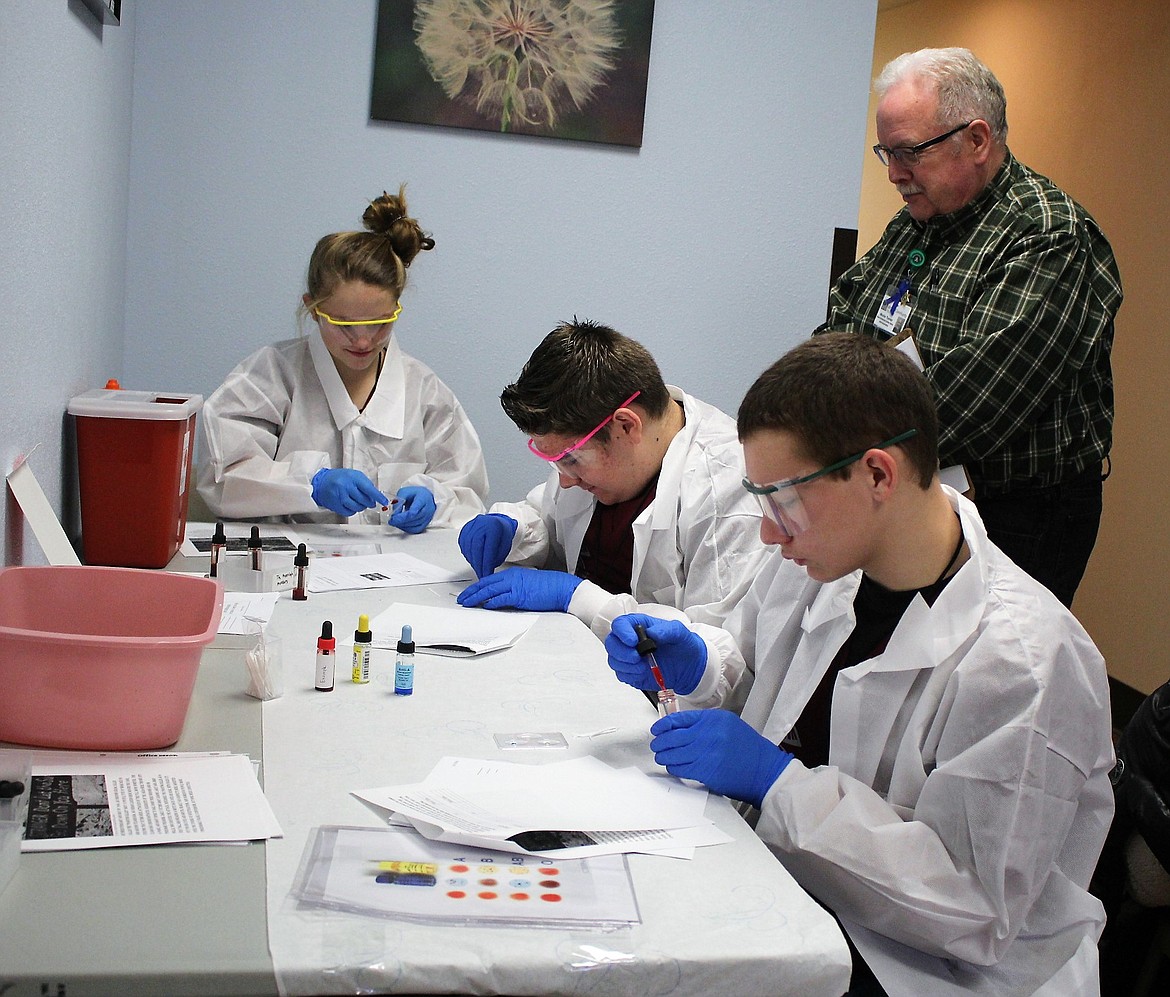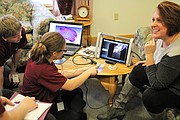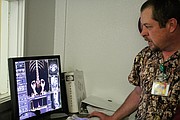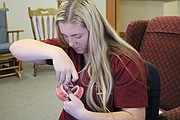REACH helps fill 1,300 health-care jobs in Montana
Students examined a 3D image of a salmon, imitated a video game on human teeth, and solved a murder mystery using real human blood — all part of an annual trek to Mineral Community Hospital last Wednesday to participate in REACH.
REACH stands for Research and Explore Awesome Careers in Healthcare, a program developed in 2007 by the Western Montana Area Health Education Center which provides an opportunity for hands-on exposure to the latest equipment, practices, and procedures in the healthcare industry.
“There are 1,300 health-care jobs available in Montana every year as health professionals retire out of the field,” said program coordinator, Martha Robertson to approximately 30 Mineral County high school students who filled the ambulance building at the hospital.
Montana’s population is getting older with the median age 67 years old and has one of the oldest populations in the U.S. The population of veterans is also high in Montana. With a shrinking healthcare workforce and an increased need for healthcare services this field is ripe for students eager to start a successful career out of high school.
Programs can run from a two-year certification to up to 12 years to become a doctor. There are also a number of scholarships and other funding available to help Montana students get the education they need said Robertson.
Students separated into six groups by color code and followed their team-leader to different stations.
Blue went to the lab where Sara Buchanan, who is a medical technician and lab manager at the hospital, set up a murder mystery using real human blood. In the case, a serial killer is on the loose in a small Texas town and the only clue is a bloody fingerprint left at the scene. Students analyzed the blood type and DNA to try and determine who the killer may be.
The pink group started in public health with Mineral County Public Health Nurse, Barb Jasper while the green group visited with Roland McCrea, a radiology technician. He had a salmon under the CT scanner which produced images of structures inside the body. Student were able to see bones, muscle, internal organs, nerves and tissue. He also showed scans of different parts of the human body and skull.
The yellow group went to Erin Woodson from Kenworthy Orthodontics where they used a hand-held wand and scanned a set of teeth, “it’s like playing a video game,” said Woodson.
Images of the teeth show up on a monitor, much like navigating a game of Super Mario. There were also sets of teeth with small rubber bands and the students used dental tools to remove them.
Down the hall the orange group was visiting with dentists Trista and Hank Jensen. While the purple group visited with Riley and Kristen Shaw and learned about physical therapy.
There are hundreds of jobs to choose from in the health-care industry and over 24 colleges and universities in Montana offer classes.
Plus, because many rural health-care facilities like Mineral Community Hospital often have a shortfall of qualified employees, graduates can participate in the Montana State Loan Repayment Program. It provides loan repayment assistance to professionals who provide health-care services in designated Health Professional Shortage Areas. There is a 2-year minimum commitment and up to $25,000 per year can be awarded.







